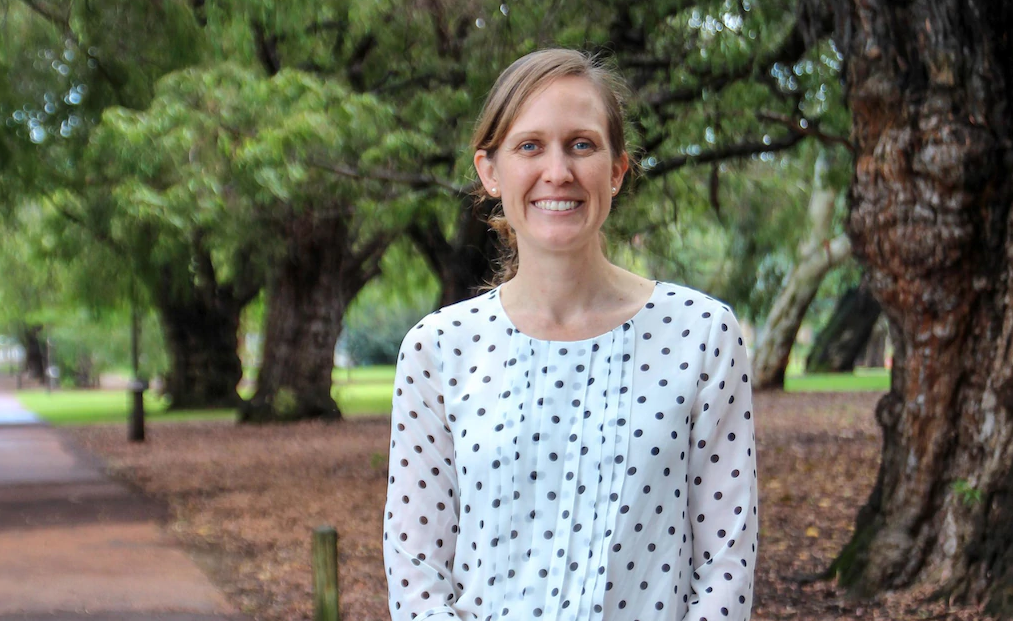
The Kids Research Institute Australia, Perth Children’s Hospital (PCH) and the Peter Doherty Institute for Infection and Immunity (Doherty Institute) will spearhead the paediatric arm of a world-first global platform trial designed to uncover treatments for Staphylococcus aureus bloodstream infection.
Staphylococcus aureus bloodstream infection is the leading cause of debilitating and often deadly bloodstream infections in children, according to lead researcher and paediatric infectious diseases clinician Associate Professor Asha Bowen.
“Staph aureus infections, which can cause sepsis, amongst other infections, send more than 450 Australian babies, children and teenagers to hospital every year, of whom 20, sadly, will die,” Associate Professor Bowen said.
“At PCH alone around 50 children are admitted with Staph aureus bloodstream infection every year. Of those, about eight will need treatment in the ICU and one child may die.
These numbers are backed up across Australia, New Zealand and the world, but we still don’t know the best antibiotic treatments for children and adolescents with Staph aureus bloodstream infections. We’re trying to find out which antibiotics work best, and how we might save more lives.
Associate Professor Bowen said the lack of specific treatment options for children was largely because, since the introduction of antibiotic use in the 1940s, fewer than 300 children with Staph aureus bloodstream infection have been part of randomised trials – the most efficient and cost-effective way to generate the evidence needed to improve clinical care.
“As a result, the evidence to inform treatment decisions for children with these bloodstream infections remains poor,” Associate Professor Bowen said.
All that is about to change, thanks to the Staph aureus Network Adaptive Platform Paediatrics and Youth (SNAP-PY) trial, which for the first time will enrol children alongside adults as part of a wider randomised controlled trial (the SNAP trial) to pinpoint effective treatments for Staph aureus bloodstream infection.
The SNAP trial – led by Professor Steven Tong from The Doherty Institute in Melbourne – aims to recruit 7,000 children and adults across more than 100 hospitals in six countries, including Australia, New Zealand and Canada.
“The SNAP trial is world leading in terms of size, methods used, and the global collaborative network involved, as we seek to answer everyday management questions for what is a common but deadly disease,” Professor Tong said.
“We are delighted to now include children in the trial, to generate evidence that is directly applicable to children rather than relying on findings from adults alone.”
Perth Children’s Hospital will be the lead site for the paediatric and youth arm of the trial, which will seek to answer critical treatment questions around the best antibiotics to use for child and adolescent patients.
“This will optimise antibiotic treatment for children with Staph aureus bloodstream infections and save lives,” Associate Professor Bowen said.
“We also hope that including children and adults together in a trial serves as an example for research into other medical conditions,” Professor Tong added.
SNAP-PY is able to get under way thanks to a $2.1 million grant from the National Health and Medical Research Council’s Clinical Trials and Cohort Studies grants program, announced today. The grants are designed to support high-quality trials and studies that address important gaps in knowledge and lead to relevant and implementable findings for the benefit of human health.
SNAP-PY is led by Associate Professor Bowen as chief investigator in a research team that will also include collaborators from the Perth Children’s Hospital, the Doherty Institute, Berry Consultants, the Menzies School of Health Research, the University of Sydney, Monash University, the University of New South Wales, the University of Auckland, Murdoch Children’s Research Institute, Queensland Children’s Hospital, The University of Western Australia, and the University of British Columbia in Canada.
Funding for the SNAP-PY trial will be administered through the Child Health Research Centre at The University of Western Australia.
Congratulations also to The Kids researchers involved in several other studies which were successful in this round of funding for Clinical Trials and Cohort Studies:
- The Kids Research Institute Australia Director, Professor Jonathan Carapetis is a chief investigator and Dr Julie Marsh and Ada Parry are associate investigators on a $2.5 million trial led by Professor Tom Snelling at The University of Sydney: ORVAC Stage 2 – Optimising Rotavirus Vaccine in Aboriginal Children: a double-blind, randomised, placebo-controlled, adaptive clinical trial of a third scheduled dose of oral rotavirus vaccine for Australian Aboriginal children.
- Professor Alex Brown is a chief investigator on a $4.9 million trial led by Professor Assam El-Osta at Monash University: Epigenetic Protection Predicts Risk Diabetic Nephropathy (EPICENTRE)
- Associate Professor Helen Leonard is a chief investigator on a $2.9 million trial led by Associate Professor Daniel McAullay at Edith Cowan University: A primary care provider intervention to improve early child neurodevelopment in Urban Aboriginal children
For more information on this round of NHMRC grants, see here.
